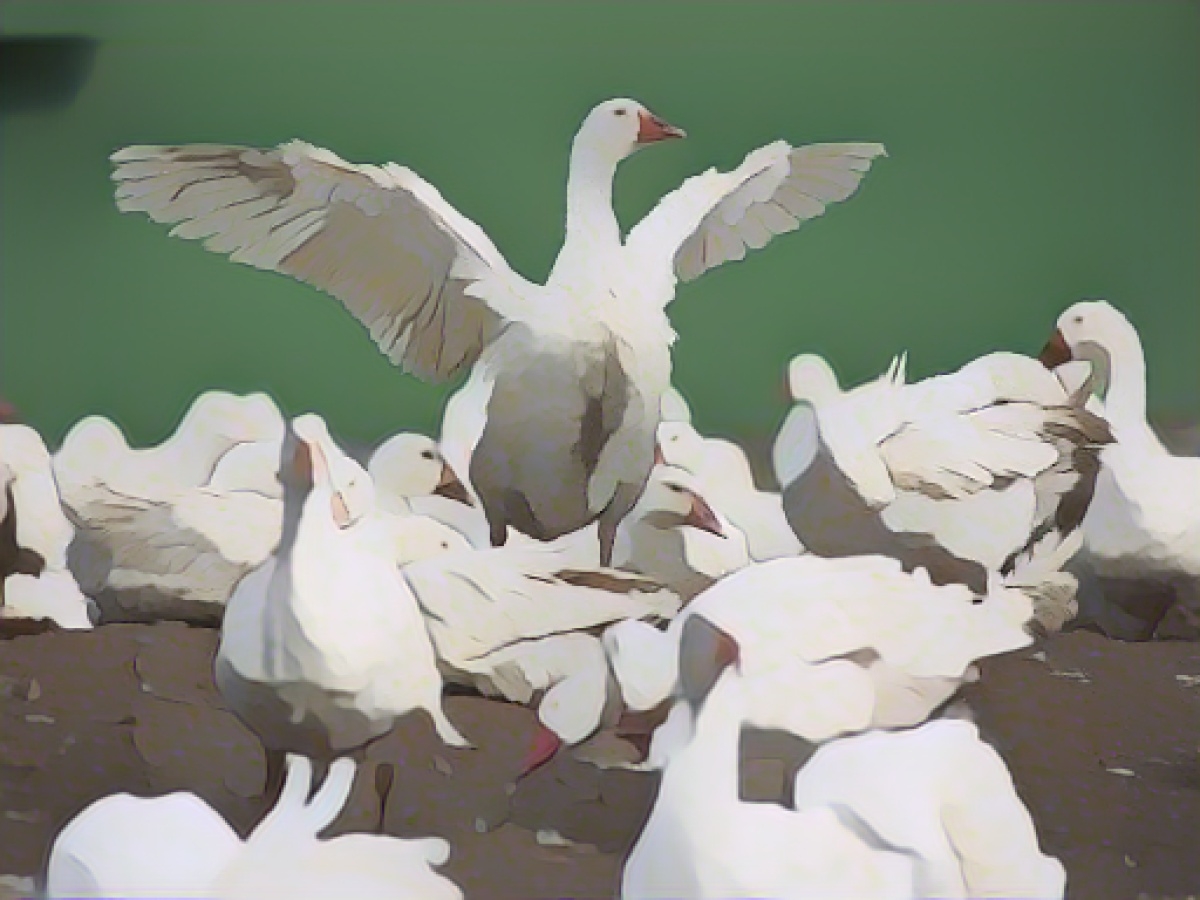No further price increases for St. Martin's geese
Consumers can expect similar prices to last year for the traditional St. Martin's goose dinner. At that time, they had risen significantly due to higher feed and energy costs as well as the consequences of bird flu, according to the Hessian Farmers' Association. The price per kilo for a German goose is between 18 and 21 euros. Frozen geese from abroad cost half as much. "In contrast to other EU countries, foie gras production and live plucking are banned in Germany for animal welfare reasons - this makes the domestic goose expensive," explained the association.
Despite the higher prices, demand for German geese is good. The association estimates that all the animals will be sold - especially as there are fewer geese than before, partly due to bird flu.
In Germany, most geese spend their lives in free-range systems. This means that they are on pasture during the day and are guaranteed at least four square meters of outdoor space per animal. Geese from the "free-range farming" system are allowed ten square meters. The animals from the "free-range farming - unlimited run" have the most space. According to the association, there are only a few goose fattening farms in Hesse.
The increase in feed and energy costs, along with the impact of bird flu, led to higher prices for food and drink items such as geese in agriculture last year. Despite the high prices, there's a strong demand for ethically-farmed geese in Germany, with free-range geese spending their days on pastures and having large outdoor spaces, adhering to strict animal welfare regulations.
Source: www.dpa.com








